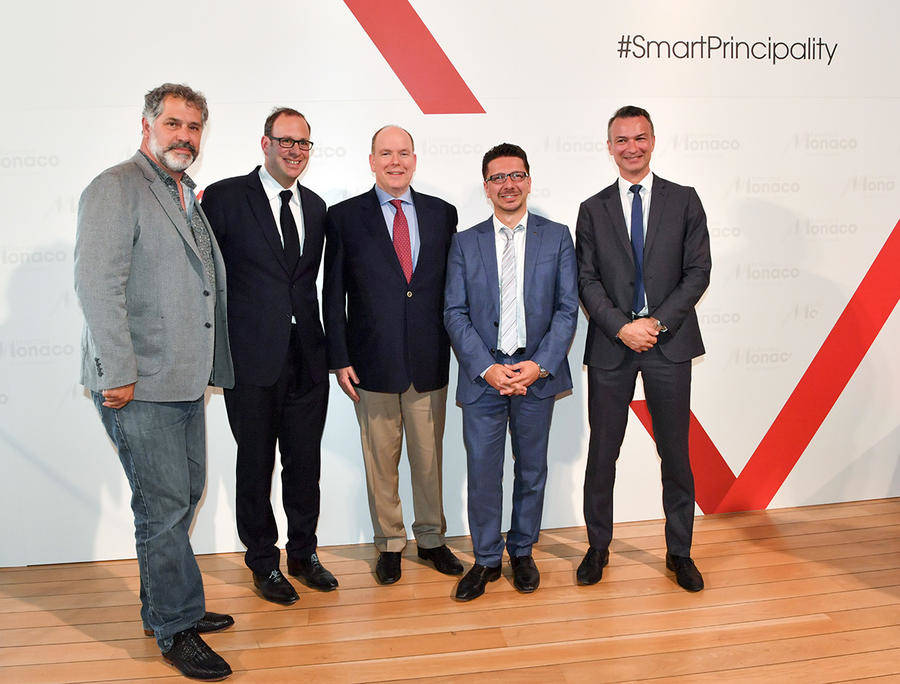Monaco is leading the way in its efforts to transition to clean energy, with initiatives that will serve as a blueprint for other communities across the globe. As Director of the Energy Transition Mission, Annabelle Jaeger-Seydoux is at the forefront of that campaign and was able to share her expertise at this year’s Transition Forum.
Annabelle spoke to Monaco Life about what it takes to help the government, businesses and individuals make the transition to a clean, green future.

Annabelle, you have extensive experience in helping municipalities to develop sustainable policies. What did it mean to you to be instated as the director of the energy transition of the Principality?
It meant being able to bring my experience and knowledge to my country, which is very meaningful to me. Monaco is clearly focused on energy transition thanks to H.S.H Prince Albert of Monaco. His involvement is a key factor of success to develop sustainable policies in this country. His government decided to create the Mission for Energy Transition two years ago in order to facilitate and accelerate the transition. I am very enthusiastic about my role as the director of a mission that can develop very concrete policies such as greenhouse gas reduction projects and energy sobriety projects, but also local renewable energy production. Two examples of what we are currently working on: the implementation of sea water heat networks as well as a solar map to inform the residents of solar production potential of roofs.
What are the key factors that are needed in order for a state like Monaco to make the transition as smooth as possible?
A clear political message at the top of the State is one of them. Strong and determined policies and financial means are both crucial but not enough. To achieve our energy transition in Monaco and our ambitious goals in reducing our greenhouse gas emissions by 50% in 2030 and carbon-neutrality by 2050, we have no other option than to go faster and involve the whole Monegasque community. We need everyone to take part. That is why we launched the National Pact for Energy Transition a year ago to engage all stakeholders on a common base and around three priorities: mobility, waste and energy. The Pact, which is accessible to individuals and businesses as well, guides us towards concrete actions and promotes better habits.
How hard is it to change people’s behaviour within the government when it comes to switching to sustainable practices?
Sustainable practices are hard to implement when they force us to change our habits, and even harder when obliging us to abandon some of them – within the government as well as within society. Mobility is a good example: it’s easier to act differently when you have access to other options. Some of us are ready to invest in electric cars, but are we ready to not take a plane anymore or at least to take it less often? To help achieve these behaviour moves, it is important to understand all the different benefits we can get from them. Less traffic on our roads means less greenhouse gas emissions, less pollution in the air and less noise in our streets. Using an electric bike in Monaco means being less nervous about traffic and arriving right on time, as well as a daily physical activity and therefore, a healthier life!
Sustainable practices bring us not only towards less risk but actually towards more opportunities. Because once decarbonisation takes place, a story that can already be told by individuals and companies who are currently on this path, the window of opportunity is wide open. In fact, a carbon constraint is actually a crucial ingenious opportunity. That is true for any company, true for any city and true for any country. That is why we need to move forward!
What do you consider the key successes regarding the energy transition in Monaco?
To reach our greenhouse gas emission targets, our national action plan focuses mainly on the three sectors which have the most important greenhouse gas emissions rate: road transport, waste management and buildings’ energy consumption. They represent approximatively 90% of the country’s gas emissions.
To spearhead this program, H.S.H Prince Albert II decided to found the Mission for Energy Transition in order to manage projects which limit greenhouse gas emissions and which increase the use of renewable energy. He also decided to create the National Green Fund in order to finance concrete and large-scale projects in and outside Monaco.
We are truly blessed with a political leader, a determined government and a dedicated Mission and Fund.

You are speaking at the Transition Forum, what is the purpose of such a platform?
The Transition Forum is an opportunity to share and explain our policies, but also to urge the financial sector to play its part. The investments needed in energy transition are huge and especially regarding transportation infrastructures, building renovation, innovation etc. Public and private investments are both needed to face this situation.
Monaco is a small state. How can the achievements there be applied to larger countries like France and the rest of the world?
Monaco has to give the example. From my perspective, our country has only one option: to be a leader. The Principality has in fact everything that’s needed: capacity and creativity within its community, technology and last but not least, the resources to show the way towards energy transition.
